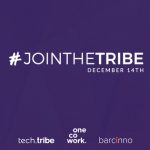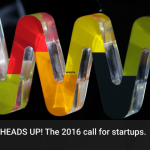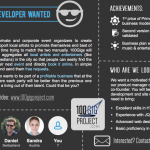This is the first part of a series of posts where Elliott will share his inside track on his experience of going through an incubator program. You can find the other editions here:
- Part II (Back To School)
- Part III (Design Thinking)
- Part IV (Legal & Fundraising)
- Part V (Marketing & Networking)
- Part VI (Pitching, Decks & Financials)
- Part VII (Demo Day & Last Days)
- Part VIII (The Round Up)
Hi there, my name is Elliott!
I’m a US/Belgian ex-pat, a four-year Barcelona resident. Perhaps more interesting for you as a reader of the fantastic Barcinno newsletter, I’m the co-founder and CEO of Abroaden.
Abroaden is a (very) early-stage WealthTech company with a mission to be the first all-digital financial adviser and investment manager for people living and working abroad.
I started this company because, as a person living abroad myself, I’ve never found an adequate solution to this critical but not-much-talked-about problem.
Trying to build my dream has been the overriding theme of my life over the past few years.
While bootstrapping any startup is a daunting task.
Doing so as a person abroad as an outsider without a deep local network makes it more difficult by a factor of ten.
As it so happens, last year, the Zurich-based stock exchange company SIX acquired its Spanish counterpart.
With this transaction, the financial multinational decided to bring its renowned Fintech incubator to Iberia.
Already operating in Zurich and Singapore, F10 runs year-round batches helping to hatch the next generation of financial innovation.
Now, with the door open in Spain, the program announced its intentions to foster the Spanish FinTech scene in both Madrid and Barcelona.
By the fall, applications for their Spring 2021 Barcelona batch opened.
I applied the second applications opened.,
After all, getting into an incubator, let alone a Fintech incubator would not only help my fledgling startup but also give me the network introductions I could only dream of.
Following an intense interview process, we were selected with 11 other startups to join the program.
When I received the news, I could barely contain myself (by chance, I found it in my updates folders two days before Christmas. I was there looking for UberEats coupons. Needless to say, that was the most celebratory Greek delivery meal I’ve ever eaten).
After having a quick chat with my friend Clemens from Barcinno and updating him with our good news, he graciously invited me to periodically share my upcoming experience in F10.
Barcinno gets questions all the time from budding entrepreneurs and early founders about incubators.
Together, we thought that this would be a perfect opportunity to give Barcinno’s readers a first-hand look into what it’s like to participate in Spain’s first-ever Fintech incubator.
Why joining a (fintech) incubator matters to us.
As readers of a tech newsletter, it shouldn’t surprise you to know that building a startup is hard. There are the inevitable days of research.
You learn as much as you can about the problem you want to solve and the people or companies whose lives or business you’re trying to improve.
As you dive deeper into your curiosity, you begin asking questions about all aspects of your idea:
- How do I market it?
- What’s the “best” way to build it?
- Why is it so complicated to form and administer a business?
- Where can I find investors who will help turn my dream into reality?
- Who can I trust for the right advice and guidance?
In addition to these intimidating and seemingly open-ended questions, fintech entrepreneurs must also understand the byzantine world of financial regulations.
For us, laws, directives, and regulations like PSD2 and MiFID II firmly define our innovative endeavor’s boundaries.
Before attempting to offer your services, you need to ensure that you’re compliant, either directly with the market authority or via a licensed provider.
Figuring all of these steps alone is near impossible. believe me, I tried. Although I am now pretty damn good at understanding Spanish securities and finance law, so it wasn’t all for naught.
Incubators, in general, help entrepreneurs solve many of these problems.
Great fintech incubators like F10 help innovators build a startup up and provide expertise on the crucial yet complicated regulatory aspects.
Additionally, they provide valuable soft resources. Aside from the weeks of training on the verticals, I mentioned earlier, we’ll also be treated to:
- Masterclasses with experts from around the world
- Introductions to people across the industry for us to bounce ideas off of
- Dedicated mentors to help guide us on our journey
- Access to Spain’s PSD2 sandbox for building and testing our idea
- A (covid-safe) working space in BCN Tech City’s famous Pier 01 startup hub
- Introductions to investors, partners, and other people who can help us out
To make our lives a bit more comfortable, F10, like many incubators, lends us a bit of money.
With these funds, we can cover some expenses, access resources, and treat ourselves to an occasional team meal.
To do this, incubators offer startups what’s known as a “convertible note.”
This financial instrument is a zero-interest loan. Instead of paying it back, the incubator can get part of the shares when we raise our first round.
For me, the benefits outweigh the costs.
As a founder, I’ve learned that unless you’re self-funding, you’ll be giving up equity either way.
With the incubator, the resources, training, and network make this exchange compellingly efficient.
Where we want to be at the end of the program.
By the time our F10 batch finishes, I want us to have a fully-finished minimum viable product and an amazing list of early-access users to share it with (sign up here to get on our waiting list!).
If we hit that goal, then we’ll be able to:
- Successfully pitch to investors
- Raise our seed round
- Start helping people
To get there, as I understand it, is going to be one hell of a marathon.
As a three-person startup (all co-founders), we’re going to become experts in each other’s domains.
While I’ve worked in content marketing in the past and have taken some online coding classes, my skills are going to get put to the test.
My co-founders know little about financial laws and regulations (that was my nerdy adventure during the idea stage). That will unquestionably change.
I want to give it everything I’ve got, because when I come out of it if anything else, I can say that I’m that much wiser, stronger, and humbled.
If I can achieve just that, then it will all be a success.
What it’s like when you go back to school and start a new job on the same day.
As you are reading this, we will already have been at it for a week.
However, Barcinno wanted to get my thoughts before starting the program. As such, I wrote this piece during the last week of February.
Right now, I’m experiencing a unique blend of emotions; part “back to school,” part “first day on the job.” Except an incubator isn’t at all like college, and I’m technically the boss.
It’s weird.
I’ve been working 10-hour days for the past month frantically getting as prepared as possible.
We’re entering a new phase of our business, getting ready to take our thoughts and skeleton product through what’s undoubtedly going to be a grinder.
We consolidated all of our work, set out to refine our logo, refined our newsletter, and, above all, made sure we’re in the best possible position to succeed.
After all, our goal is to bring our brainchild to life and find the investors willing to enable and support our growth.
F10 will give us all of the tools and resources to do so. However, it’s up to us to make it happen.
I can already tell that the program is going to be intense.
During onboarding and preparation calls, the coaching staff drilled it into our minds: “get ready to work your tails off.”
The days will be long.
Just looking at the agenda for the first two weeks, we’re in non-stop courses.
All the while, we’ll still need to work on the day-to-day, which will also be under constant transformation.
Between masterclasses, there are workshops and feedback sessions.
During this time, we’ll work on milestones in epic sprints. Once completed, we repeat the process: Masterclass on a vertical, workshops, then sprints.
The program runs non-stop for nearly five months.
Other than bank holidays, there are no days off.
Any vacation I might take would mean making up for it on the weekend.
Right now, I’m trying to put my mind at ease.
However, the excitement and stress keep creeping in.
Above all, though, it’s an absolute privilege to be a part of it.
We can’t wait.
Check part II to read my experience after a few weeks into the program.









Leave a Reply